Chinese City Eases Virus Lockdown But Life Is Far From Normal
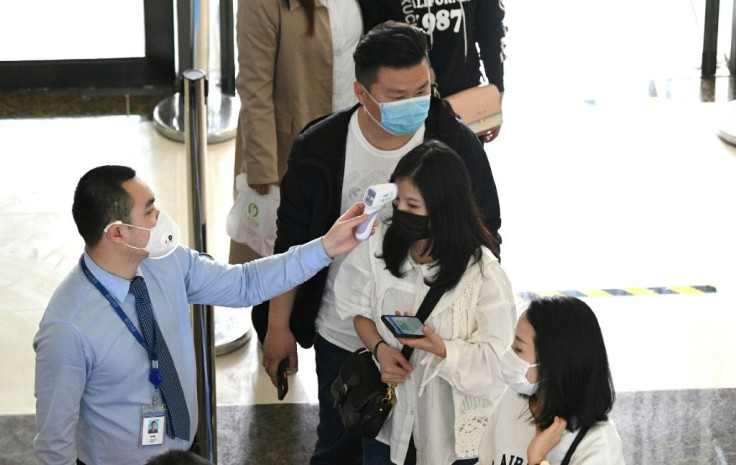
Banners warning that playing cards together is suicide and guards yelling at crowds to separate: a Chinese city near the coronavirus ground zero remains far from normal even after emerging from a two-month lockdown.
Huanggang, home to 7.5 million people, was among the worst-affected areas in Hubei, the province where the new coronavirus first emerged late last year before morphing into a deadly pandemic.
Travel restrictions were loosened on Wednesday and -- if healthy -- people were allowed to leave Hubei, where more than 50 million people were placed under lockdown in January to prevent the spread of the virus.
But warnings were prominently displayed across Huanggang city to remind people that the virus still posed a threat as they returned to the streets.
"Gathering to play cards is suicide," said a red banner hanging by the roadside.
"If you don't wear a mask, the virus will fall in love with you," warned another.
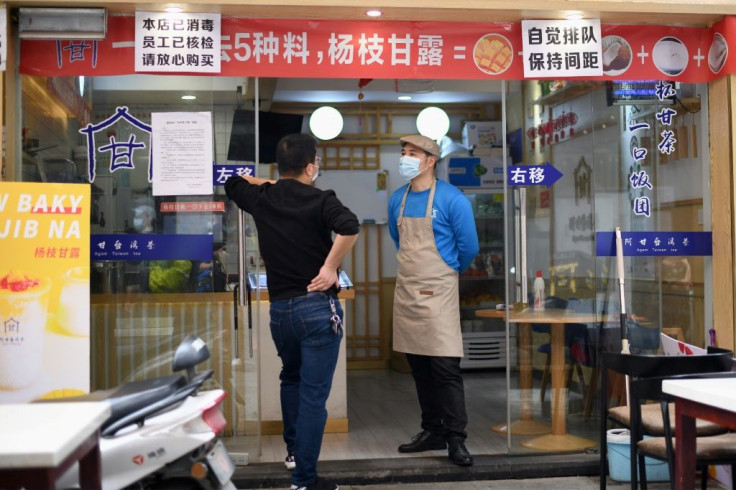
Restaurants in the city re-opened -- but diners weren't allowed to eat inside.
Instead, delivery drivers collected takeout orders from different shops on one food street lined with red lanterns, as a handful of customers ate at tables outside.
Several hotels remained closed. Others offered only a small number of rooms to guests.
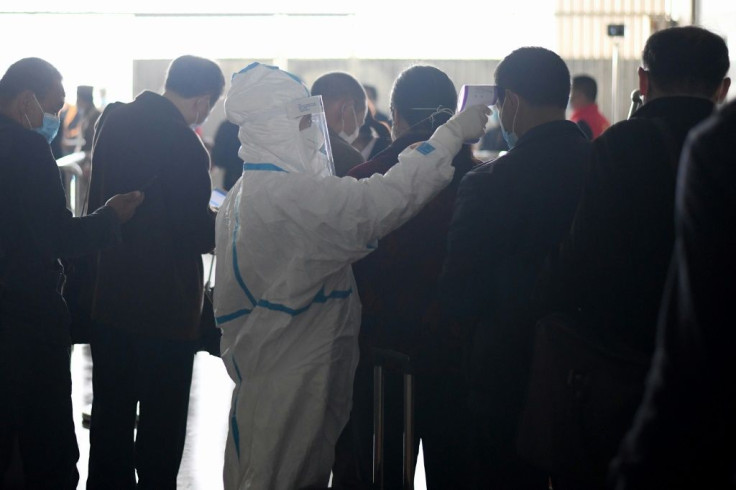
Nearly 3,000 people were infected and 125 died in Huanggang, which is now considered a low-risk area.
Like other regions in the province, people can travel in and out of the city if they have a "green" health status on a special phone app.
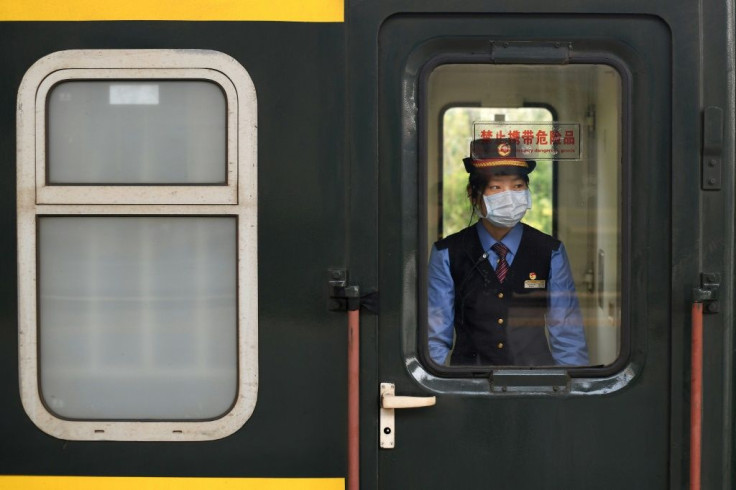
It is a big change from earlier this year, when Hubei was placed under lockdown to fight the virus, which was traced to a market in the province's capital Wuhan.
But despite the easing of restrictions, Huanggang is still on edge, and officials repeatedly told AFP that the situation was still "not safe".
Reporters were made to cover up their vented N95 masks with additional surgical masks before being allowed to leave the train station, where guards shouted at crowds of passengers not to stand too close together.
A closed field hospital is a testament to the vast changes the city has already gone through.
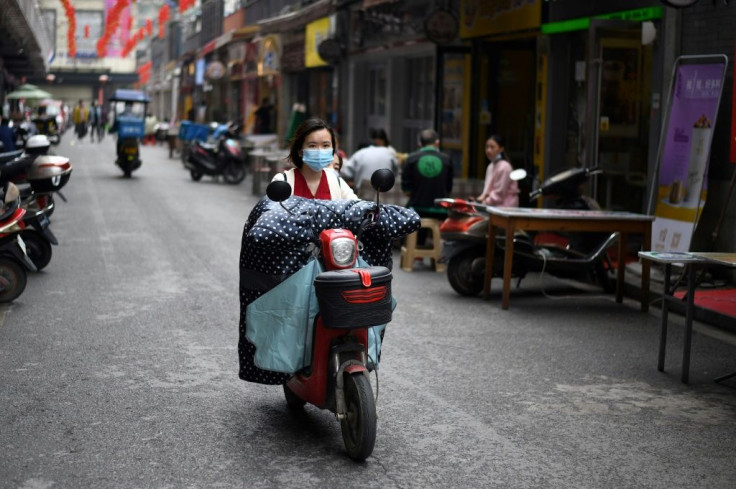
The Dabieshan Medical Center was under construction when the epidemic broke out, but new walls and equipment were rapidly drafted in to make it suitable for treating infectious diseases.
The final patients were discharged last week and now the empty hospital is dark and deserted.
AFP reporters saw used protective equipment lying on the ground, with abandoned quilts and flasks next to beds in empty wards.
Du Zhiqiang, who is in charge of the hospital's construction, said the power had been turned off after it was decommissioned as a COVID-19 facility.
Work resumed two days ago on building the new hospital as planned, he told AFP.
With transport curbs easing, thousands of people have taken their chance to travel in or out of Hubei.
AFP saw busy waiting rooms at several railway stations, and packed sleeping compartments on trains.
Many Huanggang residents jumped at the chance to go out.
Around 20 people queued to get into the Wanda Plaza mall, where shoppers had their temperature checked and showed a health code before being allowed inside.
Some businesses inside the mall were offering "re-opening discounts", and posted signs reassuring customers that the stores have been thoroughly disinfected.
One pancake seller who didn't want to be named told AFP that Thursday was her first day back at work.
Being out of the house felt "freer", she said, but business is "definitely not as good as before".
Wearing the obligatory face masks, a group of young women walked arm-in-arm down the street, deciding on lunch options.
Chen Wenjun, a 22-year-old pharmacist, ate near a street food stall with two friends.
She said she was happy to finally be out after weeks cooped up at home, but was not letting her guard down: "Even though a lot of things have been opened, we still need to take care."
© Copyright AFP {{Year}}. All rights reserved.





















